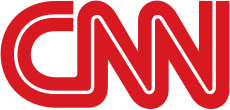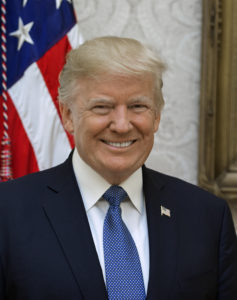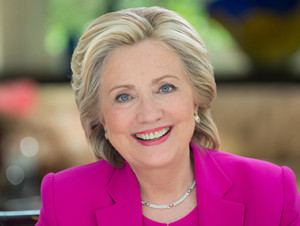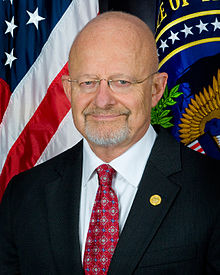Russia-gate’s Litany of Corrections
Exclusive: As much as the U.S. mainstream media insists that the Russia-gate scandal is growing, what is undeniably growing is the list of major corrections that news outlets have been forced to issue, reports Robert Parry.
By Robert Parry
The U.S. mainstream media’s year-long hysteria over Russia’s alleged role in the election of Donald Trump has obliterated normal reporting standards leading to a rash of journalistic embarrassments that have both disgraced the profession and energized Trump’s backers over new grievances about the MSM’s “fake news.”

Misguided groupthink is always a danger when key elements of the Washington establishment and the major news media share the same belief – whether that is Iraq’s supposed possession of WMD or the need to bring down some foreign or domestic leader unpopular with the elites.
Yet, we have rarely witnessed such a cascading collapse of journalistic principles as has occurred around the Russia-gate “scandal.” It is hard to keep track of all the corrections or to take note of all the dead ends that the investigation keeps finding.
But anyone who dares note the errors, the inconsistencies or the illogical claims is either dismissed as a “Kremlin stooge” or a “Trump enabler.” The national Democrats and the mainstream media seem determined to keep hurtling down the Russia-gate roadway assuming that the evidentiary barriers ahead will magically disappear at some point and the path to Trump’s impeachment will be clear.
On Friday, the rush to finally prove the Russia-gate narrative led CNN — and then CBS News and MSNBC — to trumpet an email supposedly sent from someone named Michael J. Erickson on Sept. 4, 2016, to Donald Trump Jr. that involved WikiLeaks offering the Trump campaign pre-publication access to purloined Democratic National Committee emails that WikiLeaks published on Sept. 13, nine days later.
With CNN finally tying together the CIA’s unproven claim that WikiLeaks collaborates with Russia and the equally unproven claim that Russian intelligence “hacked” the Democratic emails, CNN drew the noose more tightly around the Trump campaign for “colluding” with Russia.
After having congressional reporter Manu Raju lay out the supposed facts of the scoop, CNN turned to a panel of legal experts to pontificate about the crimes that the Trump campaign may have committed now that the “evidence” proving Russia-gate was finally coming together.
Not surprisingly the arrival of this long-awaited “proof” of Russian “collusion” exploded across social media. As The Intercept’s Glenn Greenwald noted in an article critical of the media’s performance, some Russia-gate enthusiasts heralded the CNN revelation with graphics of cannons booming and nukes exploding.
The problem, however, was that CNN and other news outlets that jumped on the story misreported the date of the email; it was Sept. 14, 2016, i.e., the day after WikiLeaks released the batch of DNC emails, not Sept. 4. In other words, it appeared that “Erickson” – whoever he was – was simply alerting the Trump campaign to the WikiLeaks disclosure.
CNN later issued a quiet correction to its inflammatory report – and not surprisingly people close to Trump cited the false claim as yet another example of “fake news” being spread by the mainstream media, which has put itself at the forefront of the anti-Trump Resistance over the past year.
But this sloppy journalism – compounded by CNN’s rush to put the “Sept. 4 email” in some criminal context and with CBS and MSNBC panting close behind – was not a stand-alone screw-up. A week earlier, ABC News made a similar mistake in claiming that candidate Donald Trump instructed Michael Flynn to contact Russian officials during the campaign, when Trump actually made the request after the election when Flynn was national security adviser-designate, a thoroughly normal move for a President-elect to make. That botched story led ABC News to suspend veteran investigative reporter Brian Ross.
Another inaccurate report from Bloomberg News, The Wall Street Journal and other news outlets – that Russia-gate special prosecutor Robert Mueller had subpoenaed Deutsche Bank records of President Trump and his family – was denied by Trump’s lawyer and later led to more corrections. The error apparently was that the bank records were not those of Trump and his family but possibly other associates.
A Pattern of Bias
But it wasn’t just a bad week for American mainstream journalism. The string of errors followed a pattern of earlier false and misleading reporting and other violations of journalistic standards, a sorry record that has been the hallmark of the Russia-gate “scandal.” Many stories have stirred national outrage toward nuclear-armed Russia before petering out as either false or wildly exaggerated. [See, for instance, Consortiumnews.com’s “Russia-gate Jumps the Shark.”]

Official portrait of President Donald J. Trump taken Oct. 6, 2017. (Official White House photo by Shealah Craighead)
As Greenwald noted, “So numerous are the false stories about Russia and Trump over the last year that I literally cannot list them all.”
The phenomenon began in the weeks after Trump’s shocking victory over Hillary Clinton as Democrats and the mainstream media looked for people to blame for the defeat of their much-preferred candidate.
So, on Thanksgiving Day, just weeks after the election, The Washington Post published a front-page story based on an anonymous group called PropOrNot accusing 200 Web sites of acting as propaganda agents for Russia. The list included some of the Internet’s leading independent news sources, including Consortiumnews, but the Post did not bother to contact the slandered Web sites nor to dissect the dubious methodology of the unnamed accusers.
Apparently, the “crime” of the Web sites was to show skepticism toward the State Department’s claims about Syria and Ukraine. In conflating a few isolated cases of “fake news” in which people fabricated stories for political or profitable ends with serious dissent regarding the demonizing of Russia and its allies, the Post was laying down a marker that failure to get in line behind the U.S. government’s propaganda on these and other topics would get you labeled a “Kremlin tool.”
As the Russia-gate hysteria built in the run-up to Trump’s inauguration during the final weeks of the Obama administration, the Post also jumped on a claim from the Department of Homeland Security that Russian hackers had penetrated into the nation’s electrical grid through Vermont’s Burlington Electric.
As journalist Gareth Porter noted, “The Post failed to follow the most basic rule of journalism, relying on its DHS source instead of checking with the Burlington Electric Department first. The result was the Post’s sensational Dec. 30 story under the headline ‘Russian hackers penetrated U.S. electricity grid through a utility in Vermont, U.S. officials say.’ …
“The electric company quickly issued a firm denial that the computer in question was connected to the power grid. The Post was forced to retract, in effect, its claim that the electricity grid had been hacked by the Russians. But it stuck by its story that the utility had been the victim of a Russian hack for another three days before admitting that no such evidence of a hack existed.”
The Original Sin
In other cases, major news outlets, such as The New York Times, reported dubious Russia-gate claims from U.S. intelligence agencies as flat fact, rather than unproven allegations that remain in serious dispute. The Times and others reported Russian “hacking” of Democratic emails as true even though WikiLeaks denied getting the material from the Russians and the Russians denied providing it.
For months into 2017, in dismissing or ignoring those denials, the U.S. mainstream media reported routinely that all 17 U.S. intelligence agencies concurred in the conclusion that Russia was behind the disclosure of Democratic emails as part of a plot initiated by Russian President Vladimir Putin to help elect Trump. Anyone who dared question this supposed collective judgment of all the U.S. intelligence agencies risked being called a “conspiracy theorist” or worse.
But the “consensus” claim was never true. Such a consensus judgment would have called for a comprehensive National Intelligence Estimate, which was never commissioned on the Russian “hacking” issue. Instead there was something called an “Intelligence Community Assessment” on Jan. 6 that – according to testimony by President Obama’s Director of National Intelligence James Clapper in May 2017 – was put together by “hand-picked” analysts from only three agencies: the CIA, FBI and National Security Agency.
Even after Clapper’s testimony, the “consensus” canard continued to circulate. For instance, in The New York Times’ White House Memo of June 25, correspondent Maggie Haberman mocked Trump for “still refus[ing] to acknowledge a basic fact agreed upon by 17 American intelligence agencies that he now oversees: Russia orchestrated the attacks, and did it to help get him elected.”
Finally, the Times ran a correction appended to that article. The Associated Press ran a similar “clarification” applied to some of its fallacious reporting which used the “17-intelligence-agencies” meme.
After the correction, however, the Times simply shifted to other deceptive wording to continue suggesting that U.S. intelligence agencies were in accord on Russian “hacking.”
Other times, the Times just asserted the claim of Russian email hacking as flat fact. All of this was quite unprofessional, since the Jan. 6 “assessment” itself stated that it was not asserting Russian “hacking” as fact, explaining: “Judgments are not intended to imply that we have proof that shows something to be a fact.”
Even worse than the Times, the “fact-checking” site Politifact, which is part of Google’s First Draft Coalition for deciding what the search engine’s algorithms will promote as true and what information will be disappeared as false, simply decided to tough it out and continued insisting that the false “consensus” claim was true.
When actual experts, such as former National Security Agency technical director William Binney, sought to apply scientific analysis to the core claim about Russian “hacking,” they reached the unpopular conclusion that the one known download speed of a supposed “hack” was not possible over the Internet but closely matched what would occur via a USB download, i.e., from someone with direct access to the Democratic National Committee’s computers using a thumb drive. In other words, the emails more likely came from a DNC insider, not an external “hack” from the Russians or anyone else.
You might have thought that the U.S. news media would have welcomed Binney’s discovery. However, instead he was either ignored or mocked as a “conspiracy theorist.” The near-religious belief in the certainty of the Russian “hack” was not to be mocked or doubted.
‘Hand-picked’ Trouble
In recent days, former DNI Clapper’s reference to “hand-picked” analysts for the Jan. 6 report has also taken on a more troubling odor, since questions have been raised about the objectivity of the Russia-gate investigators and — as any intelligence expert will tell you — if you “hand-pick” analysts known for their personal biases, you are hand-picking the conclusion, a process that became known during the Reagan administration as “politicizing intelligence.”
Though little is known about exactly who was “hand-picked” by President Obama’s intelligence chiefs to assess the Russian “hacking” suspicions, Russia-gate special prosecutor Robert Mueller has been forced to reassign Peter Strzok, one of the top FBI investigators who worked on both the Hillary Clinton email-server case and the Trump-Russia inquiry, after it was discovered that he exchanged anti-Trump and pro-Clinton text messages with a lawyer who also works at the FBI.
Last week, Republicans on the House Judiciary Committee sought answers from new FBI Director Christopher Wren about Strzok’s role in clearing Hillary Clinton of criminal wrongdoing in her use of a private unsecured email server to handle official State Department communications while Secretary of State.
They also wanted to know what role in the Russia-gate probe was played by a Democratic-funded “opposition research” report from ex-British intelligence officer Christopher Steele, which included unverified hearsay claims by unnamed Russians about Trump.
Wren avoided direct answers by citing an ongoing Inspector General’s review and Mueller’s criminal investigation, but Republicans expressed displeasure at this evasiveness.
The Republican questions prompted E.J. Dionne Jr., a liberal columnist at The Washington Post, to publish a spirited attack on the GOP committee members, accusing them of McCarthyistic tactics in questioning the FBI’s integrity.
Dionne’s straw man was to postulate that Republicans – because of this discovery of anti-Trump bias – would discount evidence that proves Trump’s collusion with Russia: “if Strzok played some role in developing [the] material. … Trump’s allies want us to say: Too bad the president lied or broke the law or that Russia tried to tilt our election. This FBI guy sending anti-Trump texts is far more important, so let’s just forget the whole thing. Really?”
But the point is that no such evidence of Russian collusion has been presented and to speculate how people might react if such evidence is discovered is itself McCarthyistic, suggesting guilt based on hypotheticals, not proof. Whatever one thinks of Trump, it is troubling for Dionne or anyone to imply treasonous activities based on speculation. That is the sort of journalistic malfeasance that has contributed to the string of professional abuses that pervades Russia-gate.
What we are witnessing is such an intense desire by mainstream journalists to get credit for helping oust Trump from office that they have forgotten that journalism’s deal with the public should be to treat everyone fairly, even if you personally disdain the subject of your reporting.
Journalists are always going to get criticized when they dig up information that puts some politician or public figure in a negative light, but that’s why it’s especially important for journalists to strive for genuine fairness and not act as if journalism is just another cover for partisan hatchetmen.
The loss of faith among large swaths of Americans in the professionalism of journalists will ultimately do severe harm to the democratic process by transforming information into just one more ideological weapon. Some would say that the damage has already been done.
It was, if you recall, the U.S. mainstream media that started the controversy over “fake news,” expanding the concept from the few low-lifes who make up stories for fun and profit into a smear against anyone who expressed skepticism toward State Department narratives on foreign conflicts. That was the point of The Washington Post’s PropOrNot story.
But now many of these same mainstream outlets are livid when Trump and his backers throw the same “fake news” epithet back at the major media. The sad truth is that The New York Times, The Washington Post, CNN, MSNBC and other leading news organizations that have let their hatred of Trump blind them from their professional responsibilities have made Trump’s job easy.
Investigative reporter Robert Parry broke many of the Iran-Contra stories for The Associated Press and Newsweek in the 1980s. You can buy his latest book, America’s Stolen Narrative, either in print here or as an e-book (from Amazon and barnesandnoble.com).
https://consortiumnews.com/2017/12/11/russia-gates-litany-of-corrections/



0 Comments:
Post a Comment
Subscribe to Post Comments [Atom]
<< Home